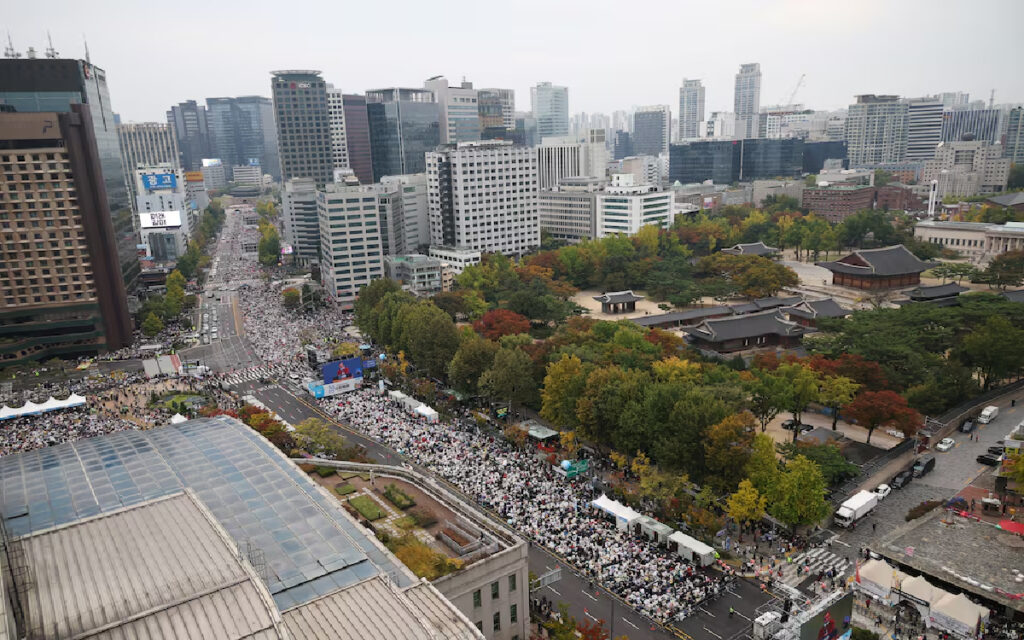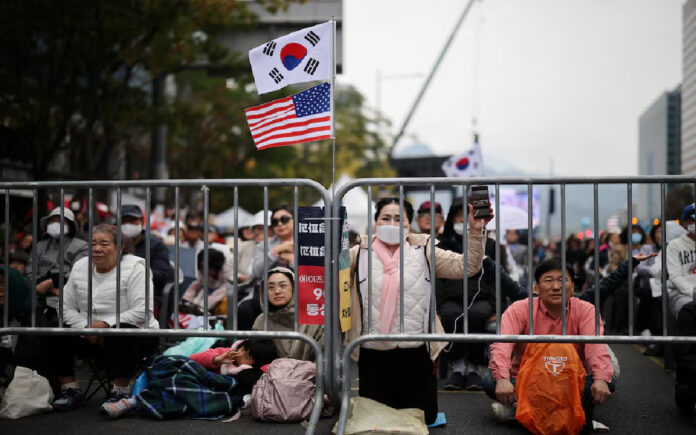Seoul: Hundreds of thousands of South Korean Christians gathered in Seoul on Sunday to protest a groundbreaking court ruling that recognized the rights of same-sex couples to receive state health insurance. In a July ruling, South Korea’s Supreme Court upheld a lower court’s decision that allowed same-sex partners to be eligible for spousal benefits from the National Health Insurance Service—a significant win for LGBTQ rights in a country where such rights have historically lagged behind other parts of the region.
The protest, organized by Christian groups, saw enormous turnout in central Seoul, leading to significant traffic disruptions across multiple major roads. Police estimated the attendance at around 230,000, while event organizers claimed as many as 1.1 million participants nationwide. Calls to Seoul Metropolitan Police for confirmation went unanswered.

Kim Jeong-hee, spokesperson for the event’s organizing committee, expressed opposition to the court’s decision, labeling it unconstitutional in a country where same-sex marriage is not legalized. “This is just the starting point for same-sex marriage legalization policy,” Kim stated. “We see this not simply as a Christian issue, but as a profound crisis shaking the foundations of our country.”
Also Read | UN Security Council to Address Israel’s Airstrikes on Iran Amid Rising Tensions
The court had ruled that the absence of specific clauses referencing same-sex unions in the National Health Insurance Act rendered the denial of such benefits discriminatory based on sexual orientation. In response, some protesters held signs reading, “Oppose the Anti-Discrimination Law” and “Protect Our Children from Gender Pollution, Gender Confusion, and Gender Division Destruction.”
Also Read | Netanyahu on Iran Airstrike: ‘We Struck the Head of the Octopus’
In contrast, a coalition of LGBTQ activists and various Catholic and Anglican groups issued a joint statement condemning the protest, calling it an act that denies inclusiveness, diversity, and respect for human rights while infringing upon the rights of minorities in the name of the majority.



